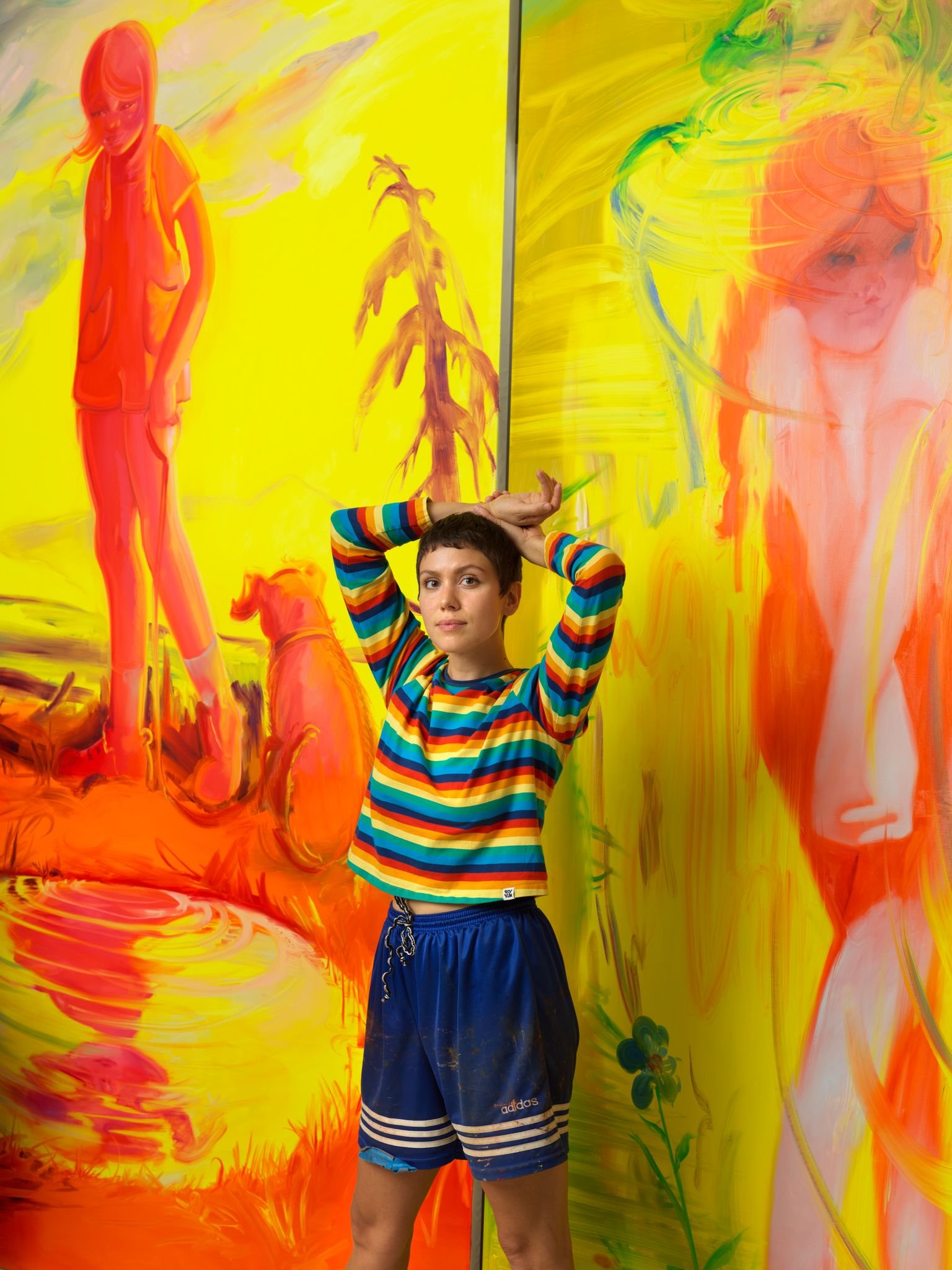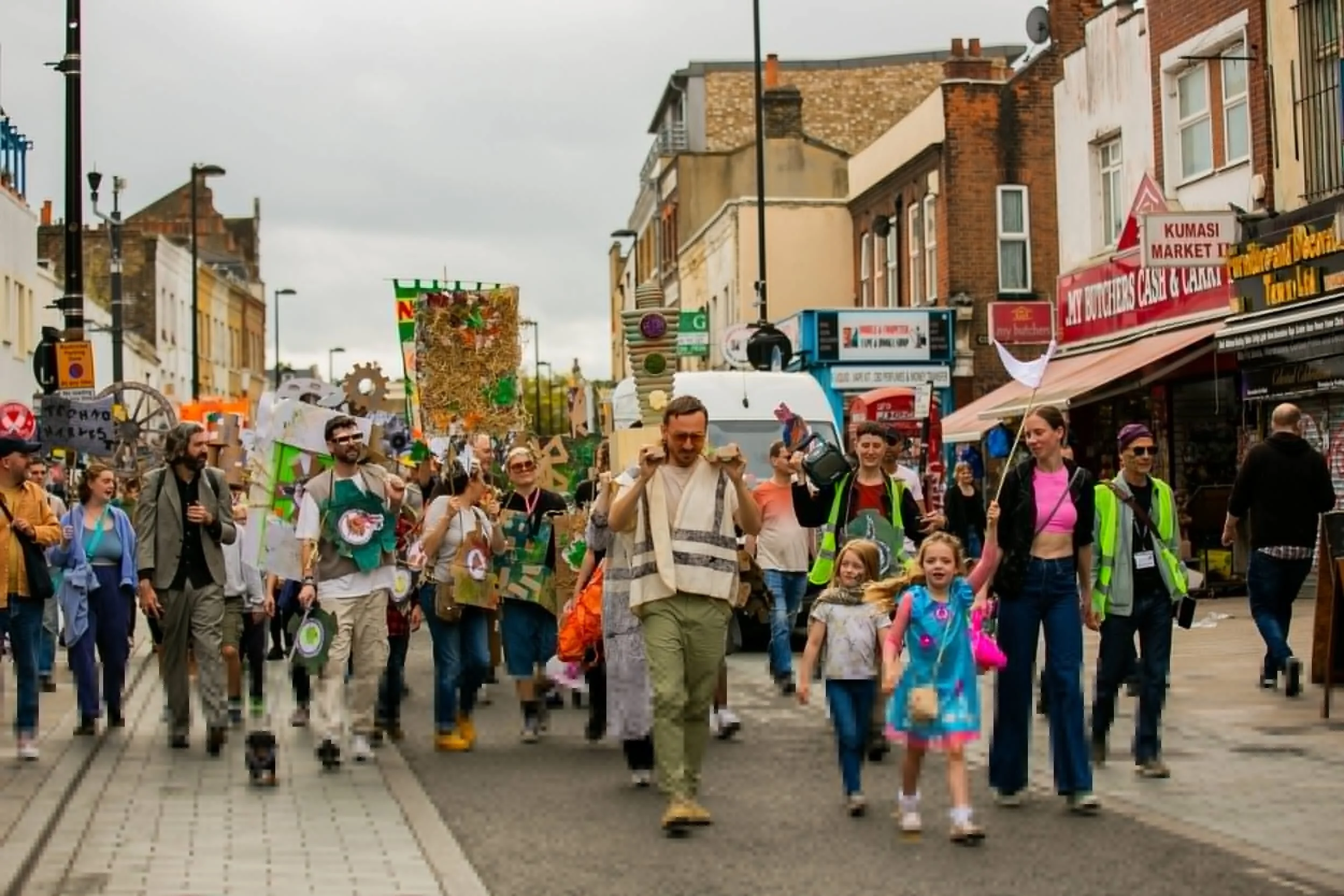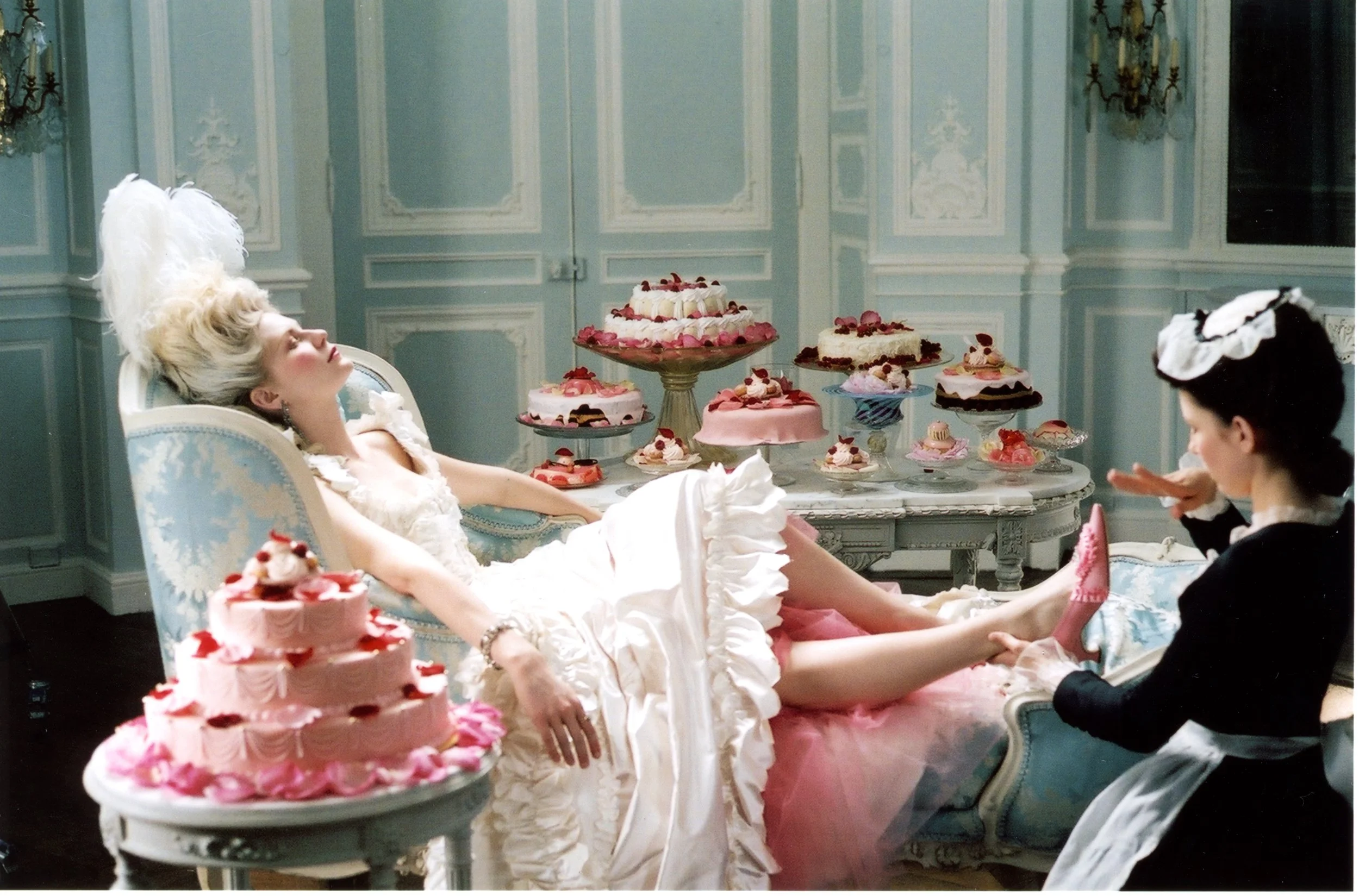In conversation with Haley Josephs
“… I've really tried to let go of fear and just paint what feels the most authentically me.”
- Haley Josephs
Image: Portrait of Haley Josephs in her studio
Drawing inspiration from notions of transformation, mortality, and femininity, Haley Josephs paints solitary figures in fantastical yet foreboding environments that transcend time and space. A recurring character within Josephs' work is the artist's late sister, who is often evoked in bold, almost daring, portraits that amalgamate intimate and personal narratives of the artist with the universal human condition. Her enigmatic paintings are colourful and whimsical yet also present a dark twist. An underlying sense of power and balance pervades her works, hinting a moment of liberation from one’s ostensibly everlasting psychological conflicts. New York-based Josephs' paintings have been exhibited internationally, including at the Cleveland Institute of Art. Her work is in the collection of the X Museum, Beijing.
What messages and themes do you try to communicate in your work? How has this evolved over the years?
I grew up in a family that experienced unexpected deaths, and emotional upheavals. I was interested in exploring my family history through painting. It was a way to get to know these people, and begin the process of mining into mine and my family's psychology, to unearth what lurked in the depth of my emotions. Or maybe to just make sense of the dark tragedies. I began painting images of my aunt who went missing in the Montana wilderness (you can view images of the re-enactment of this event on Unsolved Mysteries: Patricia Meehan). My aunt Patty and I share a lot of similar interests and characteristics: love for animals, caring and love for young children, love for mountains and nature, inward and contemplative nature and introverts... I began painting a solitary woman in landscapes, often with rolling hills and mountains; imminent weather that represented the beginning or end of a storm (a reflection of inward conflict or overcoming). This became a recurring theme. I also started painting images of my sister who lost her life violently. My representation of her has become of a little girl (you often see in my work), she is stuck in time this way and symbolises youth and childhood wonder, and at the same instant, she is timeless/ageless as she represents the departed. She exists on the other side of the veil, holding space for transformation. I feel the perspective of the world through the eyes of a child holds an important truth, consists of wonder and is free of judgement. I tried to capture this in paint and I still strive to. My sister feels like the gateway, the other end of the rainbow I'm trying to reach or have some sort of dialogue with. As I look back on my path in painting I see how these two family members have solidly inserted themselves as archetypes in my work.
Image: Haley Jospehs, Summer Rain Shower Enter Rainbow Light, 2022 - oil on linen - 228.6 x 117.8cm, 90 x 70 in / © Haley Josephs - Courtesy of the artist and Almine Rech - Photo: Charles Roussel
I have messages although they aren't meant for words which is why they are painted. They run along these lines: Death and transformation. The power to overcome (emotional turmoil). Love for the little girl in me. Giving her a voice, and giving a voice to those who are on the other side. Celebration of life, with deep respect in equal measure to death.
What was the inspiration behind your current exhibition Every Part of the Dream?
Most of the work for Every Part of the Dream was made in Maine. I've always had some aspects of nature in my work, whether they be mountains, reflective pools, trees and plants. Living so close to Acadia National Park helped to inspire me to paint more of the natural world and really lean into it. I think this is just something I've always wanted to do and it's finally coming out. The true inspiration for the work within this show is that I've really tried to let go of fear and just paint what feels the most authentically me. Animals have always been cherished symbols to me but in the past, I have felt some hesitation on how to portray them. For this show, I felt compelled to paint them and I'm excited to keep painting more. They are important witnesses to the characters and that of a psychopomp.
Image: Installation view, Haley Josephs 'Every Part of the Dream' at Almine Rech London / © Haley Josephs - Courtesy of the Artist and Almine Rech. Photo credit Melissa Castro Duarte
How does your current environment inform your work?
Being close to nature is really critical to my work. As much as possible I need to be around a forest, mountains, the sea, rivers and lakes. If I don't have access to that at least I can look up at the sky. I think you can learn a lot from a cloud. It helps to remind me of my littleness and I think that's quite humbling.
What is the best advice you have ever received?
This above all to thine own self be true.
Every Part of the Dream by Haley Josephs will be on show at Almine Rech London until 22 December 2022.









